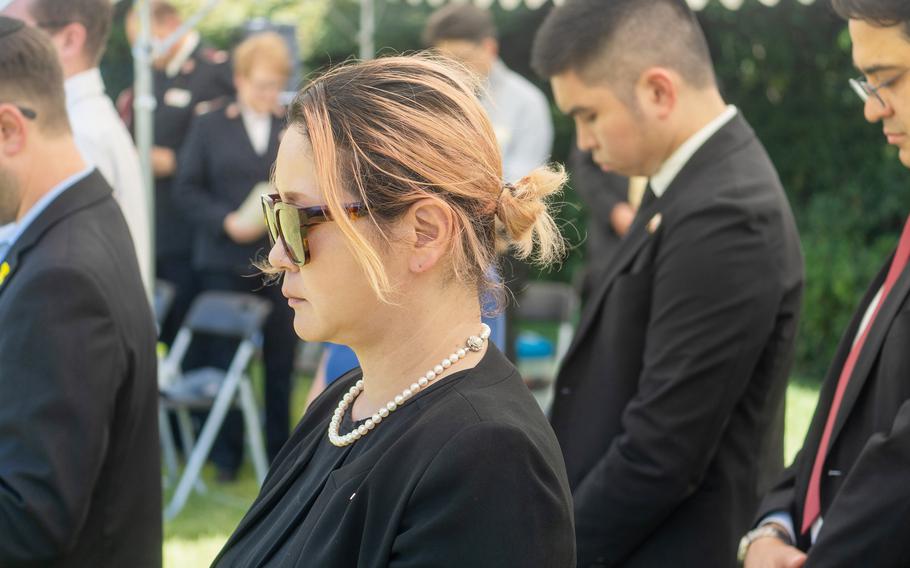
The names of more than 1,000 troops who died as prisoners of war during World War II were read aloud at the Commonwealth War Cemetery in Yokohama, Japan, Sept. 2, 2025. (Akifumi Ishikawa/Stars and Stripes)
YOKOHAMA, Japan — On the 80th anniversary of Japan’s surrender in World War II, the names of more than 1,000 troops who died as prisoners of war were read aloud Tuesday during a memorial ceremony at the Commonwealth War Cemetery.
About two dozen people gathered at the small burial ground for the service, which coincided with Japan’s formal surrender aboard the USS Missouri on Sept. 2, 1945. The country typically marks the war’s end on Aug. 15, the day then-Emperor Hirohito publicly declared his country’s surrender via a public radio broadcast in 1945.
Tuesday’s ceremony was organized by the Simon Wiesenthal Center, a California-based Jewish human rights organization. It featured remarks from a local activist, testimony from the son of a former POW and Jewish and Christian prayers.
Rabbi Abraham Cooper, an associate dean and the center’s Global Social Action director, described the ceremony as “closing a circle of memory” that began earlier this year with similar events in Germany and Austria marking the end of WWII in Europe.
“It is important for all of us to be here to close the circle on the day that is marked in the calendar as the surrender of Japan — but was actually the beginning of an amazing chapter for Japan and its embrace, thank God, of democratic values and emerging today as America’s closest ally and friend In Asia,” he told those gathered Tuesday.
The cemetery, established in 1845 by the Australian War Graves Group, holds the remains of 1,555 service members who died as POWs, according to the Commonwealth War Graves website.
A memorial at the site houses the cremated remains of 335 troops from the Commonwealth, the Netherlands and the United States.
During WWII, Japan captured about 140,000 Allied troops, though only 36,000 were held in camps in Japan. Roughly 3,500 of them died due to starvation, forced labor and harsh conditions, according to POW Research Network Japan.
Ken Murphy, a professor at Pepperdine University and the son of James T. Murphy, who was captured in 1942, spoke at the event. He said his father, who is approaching his 105th birthday, was “very moved and very honored” to hear of the commemoration.
“He asked me to convey on his behalf his sincere and heartfelt respect and remembrance of all those who endured the prisoner of war experience and paid the ultimate sacrifice so long ago,” Murphy said.
While the Simon Wiesenthal Center has visited the cemetery before, Tuesday marked its first time hosting a memorial there.
Afterward, Cooper said he hopes the ceremony can become an annual tradition.
“These kinds of deeds and programs and actions have nothing to do with politics,” he told Stars and Stripes. “I think this is an opportunity for faith leaders across the board to make it a unified type of program.”